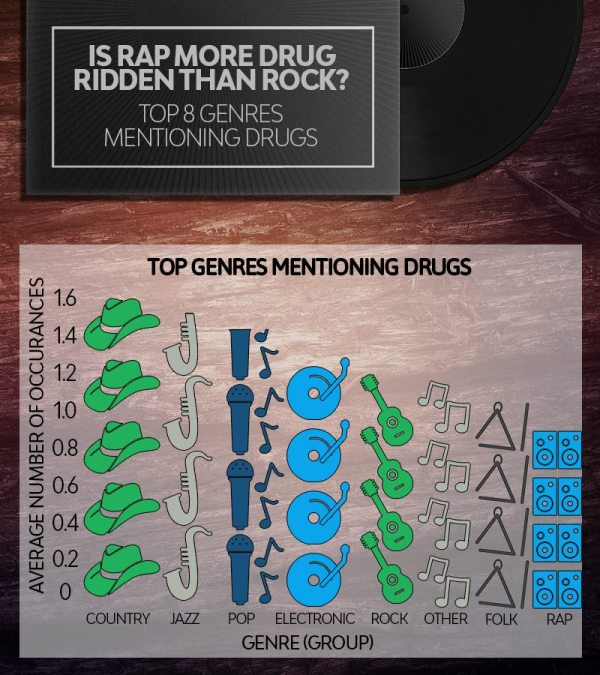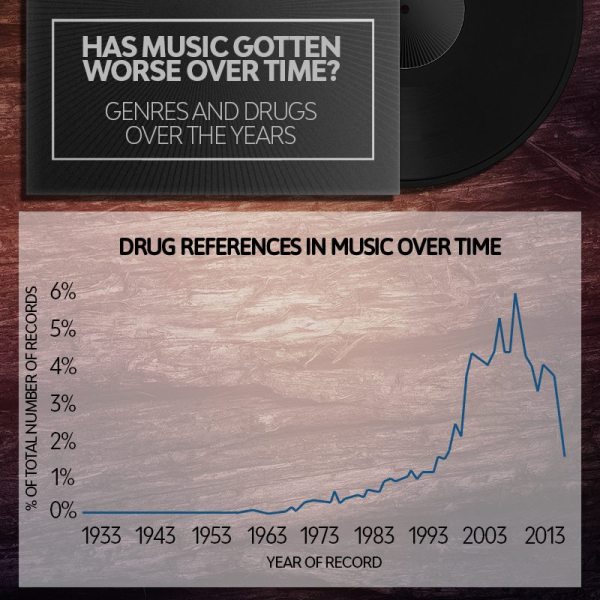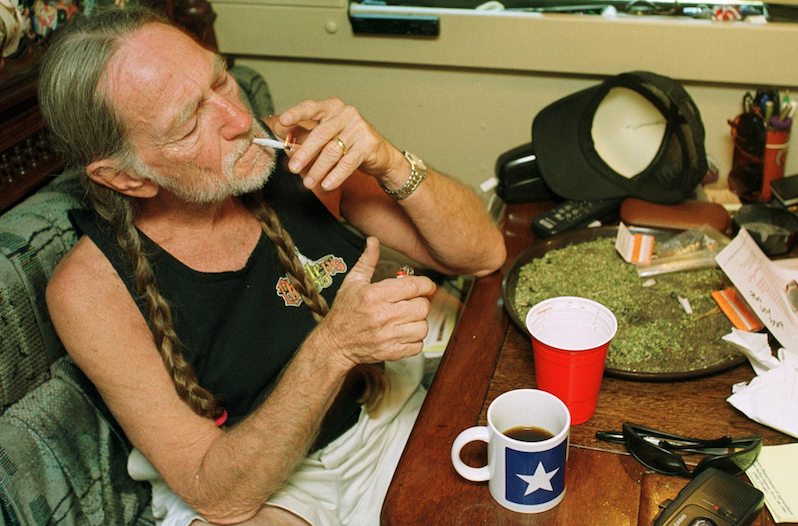Well, this is a little surprising. Even with the the proliferation of all these "you get me high" country songs, you'd probably assume that other genres referred to drugs more often. You know, the ones with bad boy personas, like rock and rap. But that's not so.
Videos by Wide Open Country
A new study shared by Newsweek actually found country music used more drug references than any other genre. Even more surprising? Jazz is the next genre in line. Followed by pop, electronic, rock, other, folk and rap.

Addictions.com
Yep. Rap comes in last in the list of genres with most drug references. How, you ask? Well, it turns out a lot of newer young rappers ditched the drug culture of the 1990s. But some of the most popular rappers still come in as heavy offenders. Artists like Eminem and Lil Wayne dominate when it comes to overall drug mentions.
Addictions.com conducted the actual research, so that's where we go to figure out the methodology. The site exclusively used Song Meanings.com and their API to compile data from lyrics.
Country music scored a surprising 1.6% occurrence rate. Of course, last place (rap and hip-hop) landed at 1.3%, so the actual data suggests a much smaller gap than the headline might.
And that's not to say the drug reference came in as a positive or negative mention of drug use. Nor does it indicate whether the drug reference was a metaphor, as is the usual (and completely overplayed) "you get me high" narrative in country.
Less surprising, marijuana ranked as the primary drug referenced. About 30% of drug references dealt with marijuana. Cocaine came in second place with 22%. The rest of the drugs mentioned included heroin, meth, acid, ecstasy and prescription pills.
READ MORE: Watch Brad Paisley Put a 420 Spin on Your Favorite Songs with Jimmy Fallon
Folk (cocaine) and Jazz (acid) are the only two genres that didn't sing about weed more than any other drug. In country, the top three offenders are marijuana, cocaine and meth.
But overall, drug mentions in music are going down. Way down. Fewer than 2% of songs use drug references now, compared to about 6% in the mid-2000s.

Addictions.com
If you or someone you know struggles with addiction, please reach out to Addiction.com's help center.




